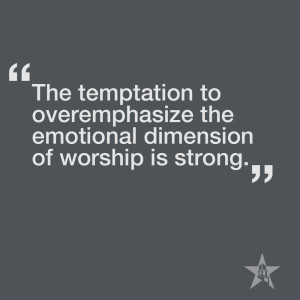Before beginning my freshman year at Houghton I spent the summer working as a counselor at Northern Frontier Camp, a Christian ministry in the Adirondacks. Whether the sun was shining or the rain was pouring, every Saturday one of the directors would lead the entire camp in singing, “It’s a beautiful day, and I thank God for the weather. It’s a beautiful day, and I’m living it for my Lord. It’s a beautiful day, and things are gonna get better. Why? Cause I’m living each day by the promises of God’s word.” I looked forward to this moment every Saturday; however, during my fifth week at camp that simple song took on new meaning for me.
 That Friday, I received a call from my mom informing me that her father was in the hospital having developed a severe cardiac condition. The next morning, I received another call and I learned that his surgery had not gone well and they weren’t sure how much longer he had to live. My immediate family had never suffered the loss of a grandparent before, and I could sense the deep pain in my mom’s voice as she told me this news. We cried together, and at that moment everything in me wanted to be home supporting my family. But I was at camp, and it was Saturday.
That Friday, I received a call from my mom informing me that her father was in the hospital having developed a severe cardiac condition. The next morning, I received another call and I learned that his surgery had not gone well and they weren’t sure how much longer he had to live. My immediate family had never suffered the loss of a grandparent before, and I could sense the deep pain in my mom’s voice as she told me this news. We cried together, and at that moment everything in me wanted to be home supporting my family. But I was at camp, and it was Saturday.
Before lunch started, everyone in the dining hall began to sing “It’s a beautiful day,” and I immediately experienced an intense feeling of anger; what right did these people have to naively sing about what a beautiful day it was when my grandfather and family were undergoing such acute distress? As I continued to sing through my tears however, I was convicted of something else. What right had I to so thoroughly enjoy this song every other Saturday, only to reject it when it no longer conformed to my emotional state and external circumstances? I was profoundly impacted by the unchanging truth of that song’s lyrics, even as I continued to experience the feelings of hurt and anger arising from my family’s situation.
This is just one experience out of several which have shaped my view of worship over the past three years. I believe that worship must be valued primarily as an expression of faith. Furthermore, I understand faith to be not an emotion, but rather a firm belief in something. Thus, expressing faith in something can be seen as an essentially cognitive act which does not require emotional confirmation in order to be authentic. Often when I worship, the lyrics or melody may not deeply resonate with me on an emotional level. Nevertheless, I still genuinely understand and believe in the truth of God’s glory as portrayed in the lyrics I sing. For me, worship consists of my deliberate decision to express that belief through song, regardless of how I may feel at the time.
 The temptation to overemphasize the emotional dimension of worship is strong, especially since many contemporary worship songs are extremely effective at invoking a specific emotional response. This emotional aspect of worship is in no way wrong in and of itself; when the gospel choir performs in chapel, the feelings of joy and excitement which they so often inspire are a wonderful blessing. The danger lies in our tendency to associate a specific emotional response with an “authentic” worship experience, and then experience disappointment or guilt when such emotions are absent. Instead, God invites us to bring all of our emotions before Him, both the positive and the negative, while deciding to focus on what we believe to be true.
The temptation to overemphasize the emotional dimension of worship is strong, especially since many contemporary worship songs are extremely effective at invoking a specific emotional response. This emotional aspect of worship is in no way wrong in and of itself; when the gospel choir performs in chapel, the feelings of joy and excitement which they so often inspire are a wonderful blessing. The danger lies in our tendency to associate a specific emotional response with an “authentic” worship experience, and then experience disappointment or guilt when such emotions are absent. Instead, God invites us to bring all of our emotions before Him, both the positive and the negative, while deciding to focus on what we believe to be true.
For an individual who attends a church service or Koinonia while struggling through the unthinkable, the sense of euphoric bliss toward which modern worship so often seems to strive may appear completely inaccessible. And that’s okay. In our broken world, the act of worship should not be expected to purge from its participants the emotions of fear, anger, and loneliness. Rather, God is glorified through our deliberate declaration of praise even when the words we speak come nowhere close to expressing the doubt or pain which we may feel in our hearts.
